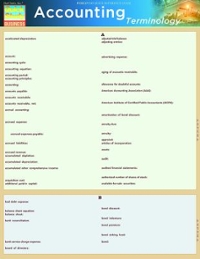Question
Refer to Unit 1 of Module 2: Analyzing Business Transactions SELF-CHECK ACTIVITY 1 - NORMAL BALANCE OF ACCOUNTS Indicate the normal balance of the account
Refer to Unit 1 of Module 2: Analyzing Business Transactions
SELF-CHECK ACTIVITY 1 - NORMAL BALANCE OF ACCOUNTS
Indicate the normal balance of the account (DR for debit or CR for credit) and in what financial statement (whether SFP
for Statement of Financial Position or SCI for Statement of Comprehensive Income) the account name should appear.
Account Name
Example: CASH IN BANK
DR or CR
DR
SFP or SCI
SFP
1. Dividend Income
2. *Cash Overdraft
3. Merchandise Inventory
4. Prepaid Supplies
5. Unearned Rent Income
6. Eve, Drawings
7. *Purchases
8. *Sales
9. *Purchases Returns and Allowances
10. *Sales Discounts
11. Professional Fees
12. Loss on Sale of Equipment
13. Equipment
14. *Accumulated depreciation - equipment
15. Eve, Capital
16. *Cost of Sales
17. Accounts Receivable
18. *Allowance for Doubtful Accounts
19. Doubtful Accounts Expense
20. Creditable tax on professional fees
21. Accrual salary payable
22. Freight - in
23. Miscellaneous Expense
24. Withholding Tax Payable
25. Net Income Summary
26. Land
27. Input Tax
28. Taxes and Licenses
29. Depreciation Expense
30. Bank loan payable
31. Interest Income
32. Freight - out
33. Net VAT Payable
34. Trading Securities
35. Notes Payable
36. Notes Receivable
37. Sales Return and Allowances
38. Gain on Sale of Capital Asset
39. Accrued Interest Income
40. Income Tax
SELF-CHECK ACTIVITY 2: RULES OF DEBIT AND CREDIT
Indicate whether each account identifiee d is to be debited (DR) or credited (CR) or have no effee ct (NE) or not accountable events
(NA).
Debit/Credit
CR
Particulars
Example: Paid rent expense
1.
Received bank service charge.
2.
Increase merchandise inventory.
3.
Owner's drawing was increased.
4.
Withholding tax payable was paid.
5.
Retired old employees.
6.
Accrued interest on notes receivable was increased.
7.
Cash in bank was decreased as a result of service charges.
8.
Accounts receivable was collected.
9.
Accounts payable was paid.
10.
Operating expenses was paid.
11.
Income was earned.
12.
Issued promissory note to pay accounts payable.
13.
Used cash of business for personal use.
14.
Accumulated depreciation was increased.
15.
Decrease allowance for bad debts.
16.
Increase employee hiring.
17.
Received communication to change business.
18.
Supplies expense was decreased.
19.
Donated cash to calamity victims.
20.
Owner won lottee ry.
SELF-CHECK ACTIVITY 3:
ACCOUNTING ELEMENTS WITH DEBIT AND CREDIT
Indicate whether the account affee cts the accounting elements (ASSETS, LIABILITIES, CAPITAL, REVENUE and EXPENSES). If
it is a contra-account, enclose in parenthesis the element from which it will be deducted, i.e. Accumulated Depreciation -----
(ASSET), and classify whether the account is to be debited (DR) or to be credited (CR).
Example: Increase in Cash
Element
Asset
DR or CR
DR
1.
Decrease in unpaid salaries
2.
Decrease in accounts receivable
3.
Increase in officc e supplies
4.
Increase in rent income
5.
Decrease in unearned income
6.
Decrease in prepaid insurance
7.
Decrease in owner's equity
8.
Increase in accounts payable
9.
Increase in net income
10.
Increase in owner's drawings
11.
Decrease in notes payable
12.
Increase in withholding tax payable
13.
Increase in unused supplies
14.
*Increase in calamity loss
15.
*Increase in insurance recovery
16.
*Increase in bad debts expense
17.
*Increase in allowance for bad debts
18.
Increase in depreciation expense
19.
*Increase in accumulated depreciation
20.
*Increase in bank overdraft
Quee stions with * are bonus questions.
SELF-CHECK ACTIVITY 4: NORMAL BALANCES AND RULES OF DEBIT AND
CREDIT
Indicate whether the normal balance of the account is debit or credit, and whether the increase or decrease of the said account
should be debit or credit.
Example: Sales Discount decreased by Php 2,000.
Normal Balance
Debit
Change Debit/Credit
Credit
1.
Cash in bank increased by Php 1,000
2.
*Allowance for bad debts decreased by Php 500
3.
*Sales discounts increased by Php 250
4.
*Purchase discounts decreased by Php 3,000
5.
Merchandise decreased by Php 40,000
6.
*Cost of sale increased by Php 20,000
7.
*Transportation out increased by Php 1,000
8.
Bad debt expense increased by Php 2,000
9.
Accounts payable increased by Php 10,000
10.
Accrued salaries increased by Php 6,000
11.
Accounts receivable decreased by Php 5,000
12.
Cash increased by Php 8,000
13.
Depreciation increased by Php 12,000
14.
Equipment sold for Php 5,000
15.
Gain on sale of equipment, Php 3,000
16.
Furniture was acquired for Php 20,000
17.
Paid accrued interest on notes payable
18.
Loans payable in bank was paid in full
19.
Notes receivable was collected in full
20.
Rent expense decreased by Php 1,50
Step by Step Solution
There are 3 Steps involved in it
Step: 1

Get Instant Access to Expert-Tailored Solutions
See step-by-step solutions with expert insights and AI powered tools for academic success
Step: 2

Step: 3

Ace Your Homework with AI
Get the answers you need in no time with our AI-driven, step-by-step assistance
Get Started


